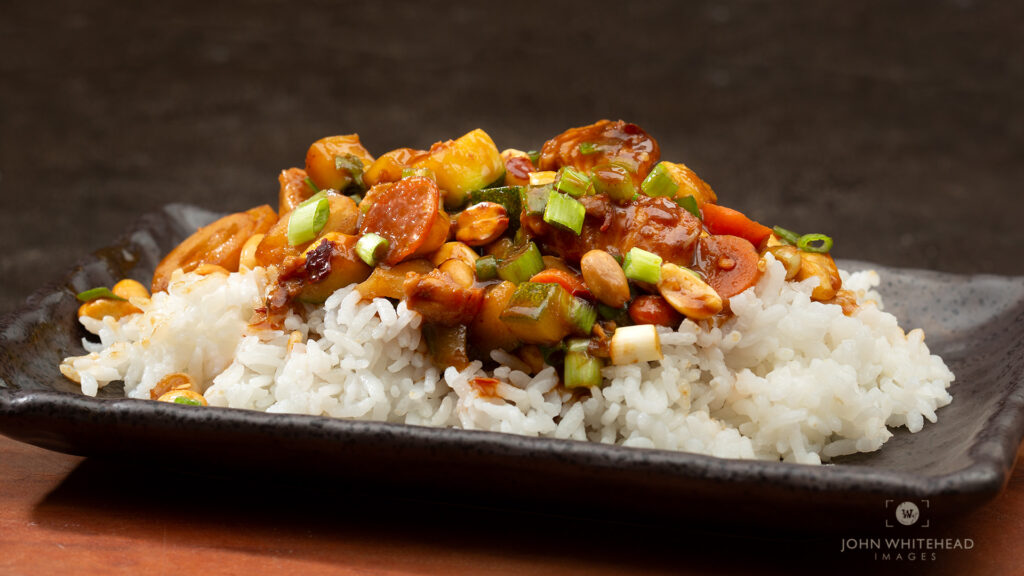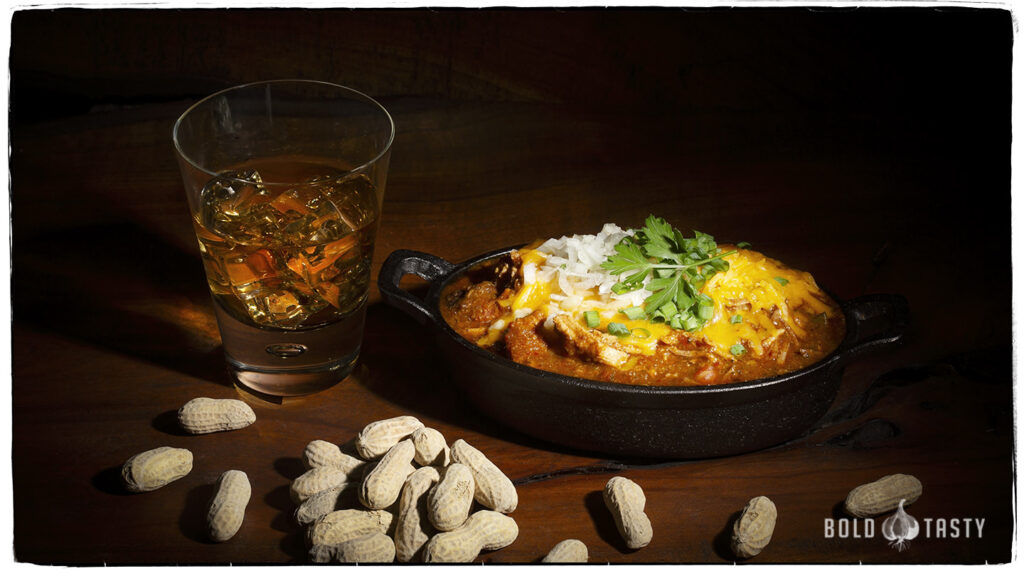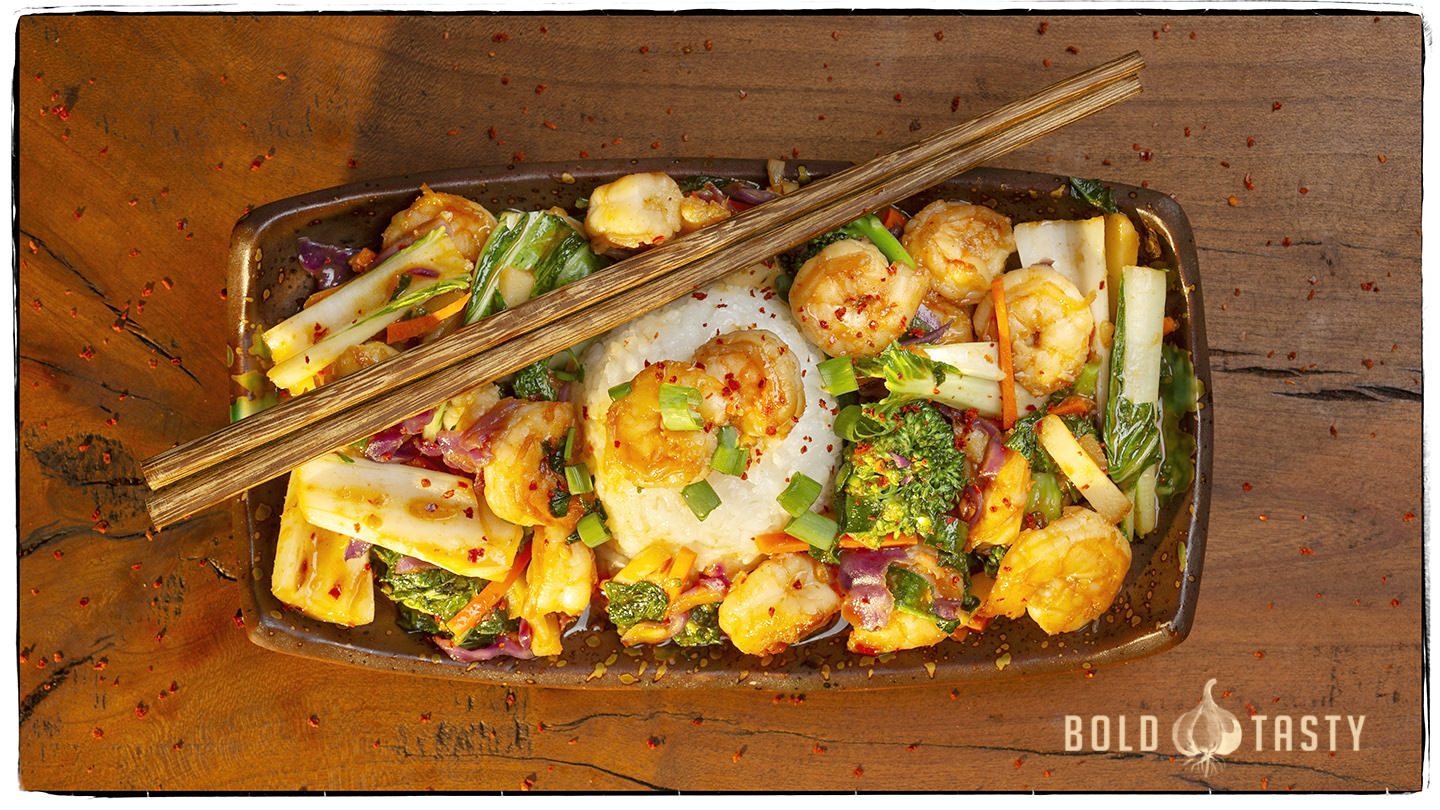
Sizzling Gochujang Shrimp with Fresh Vegetables: A Korean-Inspired Delight
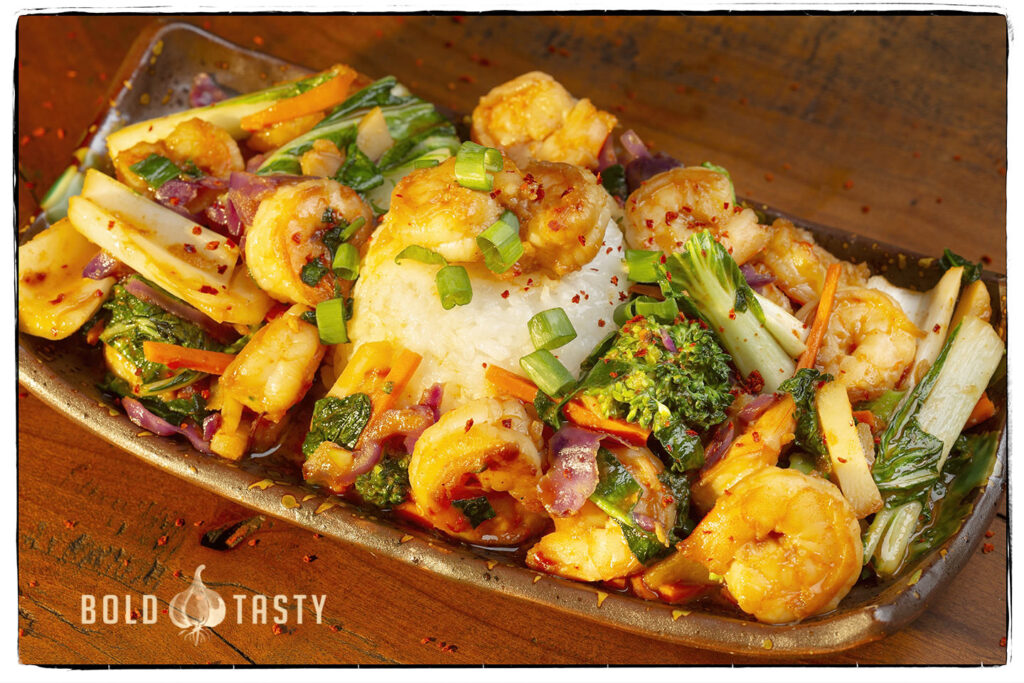
If you’re a fan of bold, spicy, and savory flavors, then Gochujang shrimp and vegetables might be your next favorite dish. Rooted in Korean culinary tradition, this dish combines tender shrimp with a vibrant array of vegetables, all tossed in a luscious sauce made from Gochujang—Korea’s famous fermented red chili paste. The result is a beautifully balanced meal that’s sweet, spicy, and umami-rich, offering a satisfying experience with every bite. Whether you’re new to Korean cuisine or a seasoned fan, this dish is a perfect introduction to the unique depth of flavor that Gochujang brings. In this post, we’ll explore what makes Gochujang shrimp and vegetables so special and how you can easily recreate it in your own kitchen.
If you would like a healthier alternative, checkhttps://boldtasty.com/gochujang-chicken-and-vegetable/ out this Gochujang Chicken and Vegetable recipes
What Are Bok Choy Spears? A Delicious and Nutritious Veggie
Bok choy spears refer to the long, leafy sections of bok choy, a type of Chinese cabbage that is widely used in Asian cuisine. Bok choy, also known as pak choi, is prized for its crunchy stalks and tender, mildly peppery leaves. When you slice bok choy lengthwise, you create what are called “spears” or wedges, showcasing the vegetable’s natural shape and structure.
Bok choy spears can come from baby bok choy, which is smaller and more tender, or from mature bok choy, which has larger, more robust stalks and leaves. These spears are commonly used in stir-fries, soups, and roasted or grilled dishes due to their ability to hold up well to various cooking methods while maintaining a pleasant texture.
Nutrition
Nutritionally, bok choy is a powerhouse of vitamins and minerals. It’s packed with vitamin C, vitamin K, vitamin A, and calcium, making it a great choice for boosting immunity, promoting bone health, and supporting overall wellness. Additionally, bok choy is low in calories and rich in fiber, making it a fantastic addition to a balanced, healthy diet.
Preparation
When preparing bok choy spears, you can blanch, sauté, or grill them, often finishing with a drizzle of soy sauce, sesame oil, or garlic for extra flavor. Their mild, slightly sweet flavor pairs well with both strong sauces and delicate seasonings, making them a versatile vegetable for any dish. Whether you’re trying to add more greens to your diet or explore new ingredients, bok choy spears are a nutritious and delicious way to add texture and flavor to your meals.
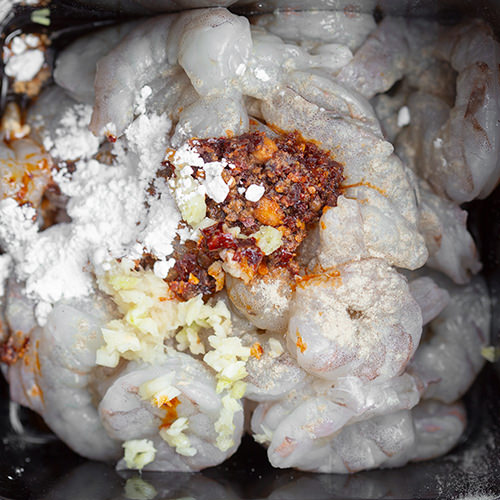
Shrimp Gochujang Marinade Ingredients
1lb of peeled and deveined shrimp or chicken, chili crisp, ginger, garlic, soy sauce and corn starch.
Shrimp Gochujang Marinade
The marinade for both shrimp and chicken are exactly the same, but feel free to use you protein of choice.
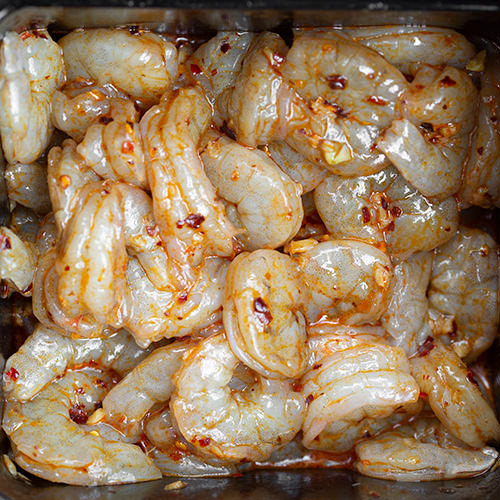
Ingredient of the Day-Gochujang Paste
Gochujang is a traditional Korean red chili paste that has become a cornerstone of Korean cuisine due to its deep, rich flavors and versatile use in countless dishes. Made from a blend of red chili powder (gochugaru), fermented soybeans, glutinous rice, and salt, gochujang offers a complex combination of spicy, sweet, and savory tastes, with a distinctive umami note. The fermentation process, which can last from months to years, gives the paste its unique depth of flavor, transforming the simple ingredients into a thick, flavorful condiment that adds heat and richness to both traditional and modern recipes.
Gochujang Flavor
The balance between spiciness and sweetness is one of the defining characteristics of gochujang. While it can deliver a punch of heat, the glutinous rice used in the paste provides a subtle sweetness, tempering the spice and making it accessible to a wide range of palates. The fermented soybeans contribute an umami layer, akin to miso or soy sauce, which enhances the overall flavor profile. This makes gochujang a versatile ingredient that works well as a base for sauces, marinades, stews, soups, and even dips.
Korean Staple
In Korean cooking, gochujang is essential in popular dishes like bibimbap, tteokbokki (spicy rice cakes), and bulgogi (grilled marinated meat). It’s also increasingly used in fusion dishes, adding a Korean twist to tacos, burgers, and more. Beyond its bold flavor, gochujang also offers health benefits, as the fermentation process may provide probiotics that support gut health. However, due to its high sodium and sugar content, it’s best used in moderation. Whether you’re a fan of spice or simply looking to explore global flavors, gochujang is a must-try ingredient that brings a burst of Korean flavor to any dish.
Wash Your Rice
Yes, you need to wash rice before you cook it. Washing rice will remove starch, and reduce the level of arsenic. I usually soak and wash my rice for 20 minutes. You will need to change the water 7-10 times, or until the water is clear. If you use basmati rice, definitely make sure you soak your rice for 20-25 minutes. Basmati is a long grain rice which if different that most Chinese medium and short grain rice. Basmati is a light and fluffy rice vs. a stickier rice. I usually use Nishiki Premium Medium Grade Rice for Chinese Food. I use Zebra Brand Basmati Rice for Thai and Indian dishes. Short grain rice is very stick and is usually used for sushi or sticky rice. Always refer to the directions.

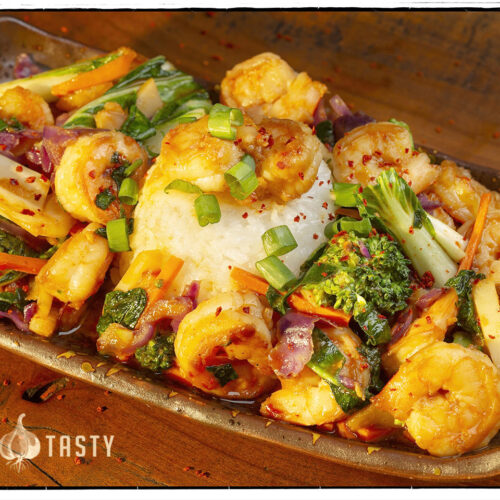
Gochujang Chicken or Shrimp with Vegetables
Equipment
- 1 small bowl
- 1 wok or pan
Ingredients
Chicken Marinade
- 1 whole chicken breast sliced, or 1lb of shrimp
- 1 tsp chili chrisp
- ½ tsp fresh ginger
- 1 whole garlic clove chopped
- 1 tsp soy sauce
- 1 tsp corn starch
Gochujang Chicken and Vegetables
- ¼-⅓ cup carrots I made matchstick
- ¼-⅓ cup water chestnuts sliced
- ⅓ cup fresh spinach
- ¼-⅓ cup red cabbage
- ¼-⅓- cup sliced red peppers (or any variety)
- ⅓ cup broccoli
- 2-3 whole bok choy spears rough chopped
- ¼ cup green onions chopped
Gochujang Sauce
- 1-2 tbsp gochujang sauce
- 1 tbsp Truvia brown sugar, I used honey for the Shrimp version or regular or honey
- ½-1 tsp fresh ginger
- 1-2 tsp mirin
- 1-2 tsp soy sauce
- ½ tsp corn starch slurry if you want sauce to stick. I did not do this. optional
Instructions
Chicken or Shrimp Marinade
- add sliced chicken (it is easier to do when it is partly frozen) or shrimp1 whole chicken breast sliced, or 1lb of shrimp
- add all ingredients, stir and refrigerate for 45 minutes to overnight.1 tsp chili chrisp, ½ tsp fresh ginger, 1 whole garlic clove chopped, 1 tsp soy sauce, 1 tsp corn starch
Gochujang Chicken and Vegetables
- use 1 tbsp of oil and saute chicken to 75% done on high heat. Remove from pan and set aside.
- add all vegetables except spinach, bok choy spears, and green onions and saute for 1 minute.¼-⅓ cup carrots I made matchstick, ¼-⅓ cup water chestnuts sliced, ¼-⅓ cup red cabbage, ¼-⅓- cup sliced red peppers (or any variety), ⅓ cup broccoli
- add spinach and bok choy and saute for 30 seconds to a minute⅓ cup fresh spinach, 2-3 whole bok choy spears rough chopped
- add chicken/shrimp and green onions¼ cup green onions chopped
- add sauce and bring to simmer and you are done.1-2 tbsp gochujang sauce, 1 tbsp Truvia brown sugar, I used honey for the Shrimp version, ½-1 tsp fresh ginger, 1-2 tsp mirin, 1-2 tsp soy sauce, ½ tsp corn starch slurry if you want sauce to stick. I did not do this.
- serve and enjoy!

